 |
| Farmers prepare to sow |
In recent days, farmers in Huong So ward ( Hue city) have been preparing the land and sowing some rice fields. Since planting, the weather has turned cold and rainy. Weather like this is normal for farmers in Huong So as well as in the province, however, the requirement for farmers is not to be subjective but to focus on implementing cold protection for seedlings, newly sprouted rice and young rice.
Mr. Nguyen Van Quang in Huong So Ward said that extreme weather, cold rains from the beginning of the winter-spring crop have often occurred for many years. Although farmers have a lot of experience in preventing and fighting cold for seedlings and young rice, they cannot be subjective in the face of extremely complicated and unpredictable weather developments like today. Since sowing until now, Mr. Quang has checked the sown fields almost every day to have measures to prevent and fight cold according to regulations.
At the cooperatives of Huong Vinh and Thuan Hoa communes (Hue City), farmers are also actively preparing the land and planting the winter-spring crop. Mr. Nguyen Ngoc Binh, Director of Thuan Hoa Agricultural Cooperative, shared that in addition to urging people to sow rice seedlings and prepare the land for timely winter-spring crop planting, the cooperative has encouraged and advised member households and farmers to implement cold prevention and control for rice seedlings and young rice according to the instructions of the cooperative staff and local authorities.
Head of the provincial Department of Cultivation and Plant Protection, Mr. Ho Dinh informed that according to the forecast of the National Center for Hydro-Meteorological Forecasting, the cold weather may continue in the coming days, the temperature will continue to drop along with drizzle, high humidity will affect the growth of crops.
To limit the damage caused by severe cold to rice and agricultural production in general, the agricultural sector urges and mobilizes farmers to plow and till the land early to destroy dead rice, weeds and destroy pests. Localities and farmers closely monitor weather developments, sow and plant according to the crop schedule, and implement plans to prevent cold and flooding when heavy rain occurs.
Cooperatives and farmers must take measures to ensure enough water in the fields to keep the rice warm (keep the water level at 2/3 of the height of the rice plant); absolutely do not apply nitrogen fertilizer or N:P:K fertilizer to rice when the temperature is low. Farmers should take advantage of the dry and warm weather to take care of and prune to ensure density, apply fertilizer early, and balance N:P:K for the rice area according to the correct process. This will help the rice plant grow and develop healthily from the beginning of the season, increasing its resistance to pests and adverse external conditions.
According to the recommendations of the agricultural sector, farmers are not allowed to use herbicides to spray on rice plants after sowing in cold, rainy weather conditions, with temperatures below 18oC. This will affect the growth and development of the rice and can kill the rice.
Depending on the actual situation of the locality, it is necessary to structure the rice varieties for planting appropriately, converting varieties with long and medium growing periods such as NN4B, X21, Xi23... to varieties with short growing periods such as HG12, DT100, DT39... in low-lying areas, late planting to ensure the planting schedule, reduce the cost of flooding. The agricultural sector and cooperatives proactively review and prepare the necessary reserve seeds, absolutely do not leave the fields fallow.
Localities regularly inspect, detect and guide farmers to prevent and control harmful organisms in a timely manner, especially rats and golden apple snails... At the same time, propagate and guide farmers to apply technical advances in production; replicate integrated pest management (IPM) models, the "3 reductions 3 increases" model, use biological products in stubble treatment... to reduce production costs, increase productivity, quality and economic efficiency.
For other crops, it is necessary to harvest winter vegetables in time to ensure productivity and quality. Farmers should add compost, phosphate, potassium, cold wood ash, and trace elements to the vegetable area that is not yet ready for harvest to help the plants grow and develop smoothly, increasing their ability to withstand severe cold. Absolutely do not plant vegetables and crops when the weather is severe cold.
Depending on the specific conditions of each locality, appropriate crop rotation and intercropping "formulas" should be arranged (peanuts - cassava, peanuts - beans, peanuts - potatoes) to ensure the season. People need to increase investment in intensive farming and care according to the correct technical process right from the beginning of the season to achieve productivity, quality, increase economic efficiency and food safety.
For fruit trees, the agricultural sector guides farmers to regularly clean the garden, prune excess branches, pests, and clear the drainage system; increase care, and balance fertilization for fruit trees, rubber trees, pepper trees, etc. to ensure tree growth, development, and resistance to pests. The agricultural sector recommends that farmers mulch the roots to keep the trees warm with organic residues, agricultural by-products, etc.; combine adjusting the amount of fertilizer, increasing potassium, organic fertilizer, and reducing N:P:K to increase the tree's ability to resist cold.
Source



![[Photo] President Luong Cuong presents the 40-year Party membership badge to Chief of the Office of the President Le Khanh Hai](https://vphoto.vietnam.vn/thumb/1200x675/vietnam/resource/IMAGE/2025/5/19/a22bc55dd7bf4a2ab7e3958d32282c15)
![[Photo] General Secretary To Lam attends the conference to review 10 years of implementing Directive No. 05 of the Politburo and evaluate the results of implementing Regulation No. 09 of the Central Public Security Party Committee.](https://vphoto.vietnam.vn/thumb/1200x675/vietnam/resource/IMAGE/2025/5/19/2f44458c655a4403acd7929dbbfa5039)


![[Photo] Prime Minister Pham Minh Chinh inspects the progress of the National Exhibition and Fair Center project](https://vphoto.vietnam.vn/thumb/1200x675/vietnam/resource/IMAGE/2025/5/19/35189ac8807140d897ad2b7d2583fbae)
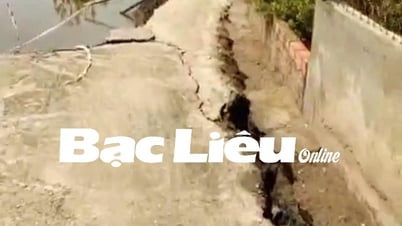


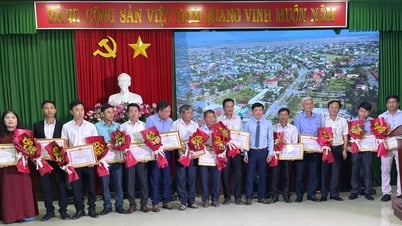





















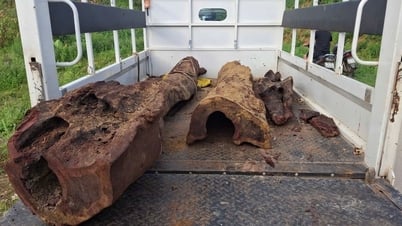






























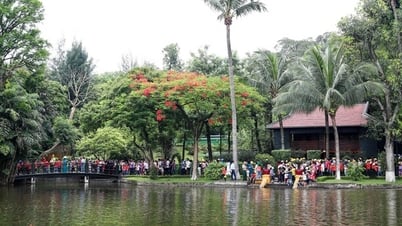

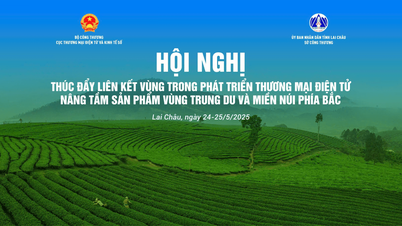










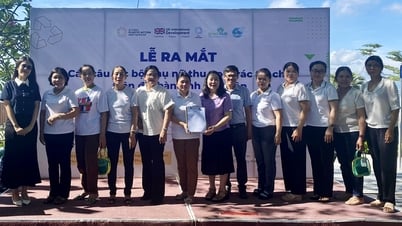




![[VIDEO] - Enhancing the value of Quang Nam OCOP products through trade connections](https://vphoto.vietnam.vn/thumb/402x226/vietnam/resource/IMAGE/2025/5/17/5be5b5fff1f14914986fad159097a677)





Comment (0)